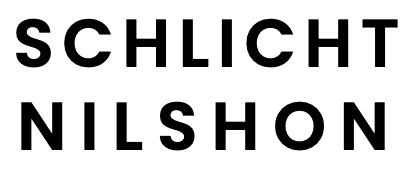Home. » Changing better. » Strategy
Power Tracks to Change / N° 2
My
Strategy.
our
Strategy.
Strategy is a hard nut to crack. No doubt in everyone’s use nearly all the time, people still tend to have little clues as to what »strategy« actually means. What it’s supposed to be. By stating: »My strategy is . . .«, people often want to express how they intend to proceed: the process, the procedure, the line of (future) action. Tactical considerations, too. Or techniques.
The strange thing about »our« strategy (that is, the strategy of e.g. an organization) is, however, that it doesn’t tell something about the »how« of future action. Basically, it doesn’t even tell the »what«. What it does contain, what it has to define, is the frame of future action; is the environment for future action to happen in, and the environment’s (supposed) preconditions; is the focal aspects to concentrate one’s resources on, that is, to »allocate« them; and is, of course, what one expects to be the outcomes, once the resources have been accordingly – and properly – allocated.
No doubt the latter aspect is a crucial one: To know what one expects allows for the organization to check: Did our strategy work? Has happened what we expected to happen? After we’ve focused and invested our forces in the fields we deemed the important ones? The ones to make the difference?
Have a quick look at our very simple, five-step model below.
»When things are complicated, there’s always someone to botch it.«* — Here’s a very simple strategy model, with only five questions.
(* As stated by »The Big Lebowsky« – know the movie?)
What is the world, what is the environment relevant for our business? Who are the players? How do we expect the world, environment, players to develop and change? What do we expect the changes' impacts on our business to be?
What does the environment expect from us? What are the players' expectations? Which expectations are the important ones, and why?
What are the action fields for us to make or help happen what the environment wishes? What's to be the timeframe for us to make or help it happen (quickly)?
With resources generally being limited: How do we want to allocate resources – given the action fields identified?
What do we like to see happen while putting the strategy into action? How can we best measure it to see what works – and what doesn't? And to provide for amendments early on?
Two more sentences on strategy — from very different perspectives.
// I always skate where the puck is going to be –
not where it was. //
Wayne Gretzky
Canadian Icehockey Pro
// And still, I do believe that one gets closer to the goal when stating that for most questions there are answers. If the questions are rightly put, that is. //
Halldór Laxness (1902–1998)
Iceland Novelist and Nobel Prize Laureate in Literature
While we are quoting the great Halldór Laxness, we cannot keep from showing where he used to live — Halldór Laxness’ home, and car.*
(*Great thanks to the photographer: Jóhann Heiðar Árnason – CC BY – SA 3.0, https://de.wikipedia.org/w/index.php?curid=5596174)

